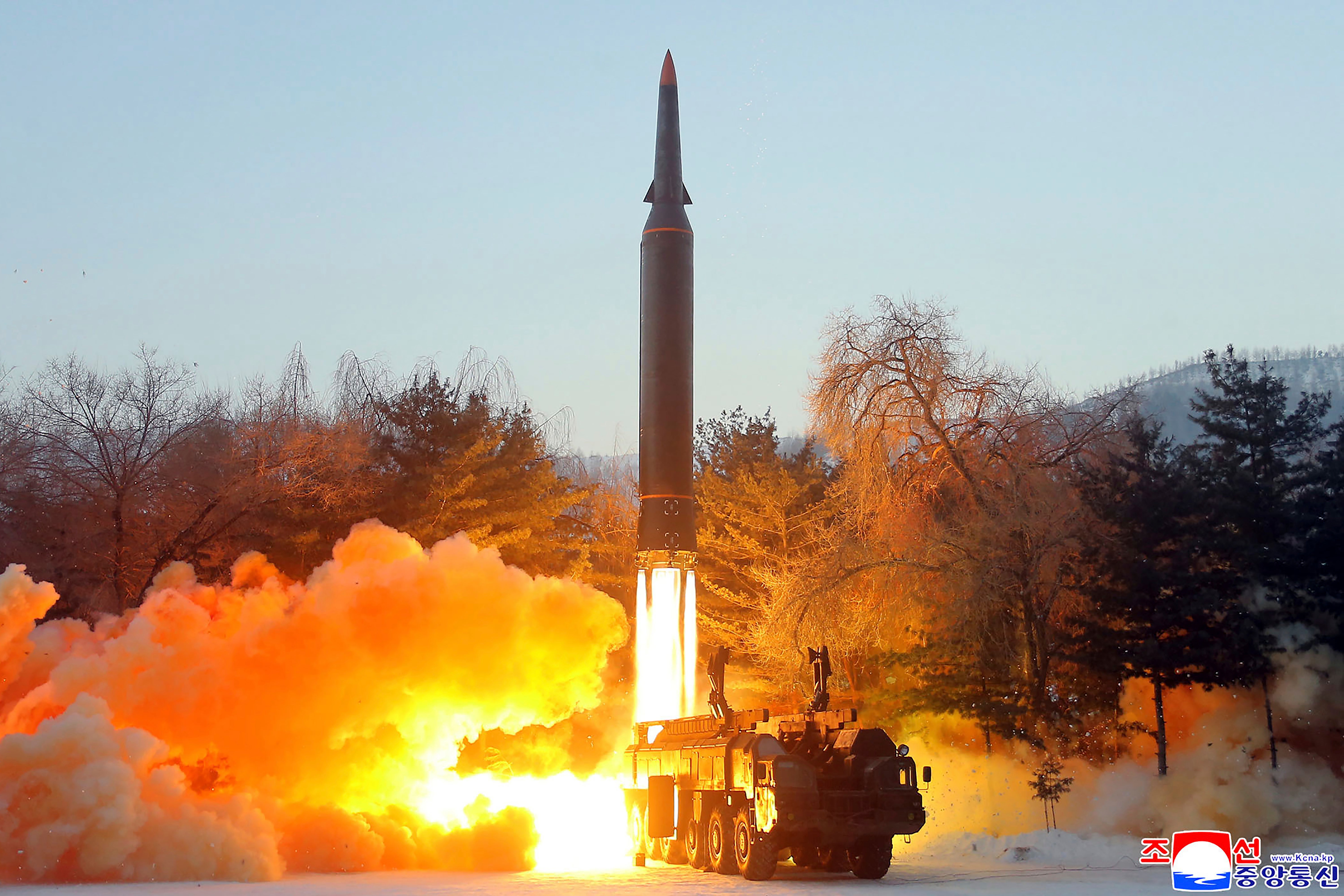North Korea fired ‘ballistic missile’ which exploded mid air, US and South Korea say
Growing suspicion emerging that the North may soon fire ICBM for first time since 2017

North Korea test fired an unidentified “projectile” on Wednesday which exploded mid air soon after liftoff, South Korea’s military has said.
The projectile was launched from the Sunan international airport, just outside the North’s capital Pyongyang at around 9.30am (local time), according to South Korea’s Joint Chiefs of Staff. “It is presumed that it failed immediately after launch,” the statement said.
The missile blew up while flying at an altitude less than 20km, a South Korean military official told the Associated Press on condition of anonymity. The official added that the cause of the explosion was not immediately known.
Debris fell near Pyongyang after the test, according to Seoul-based NK News, which cited a photograph showing a ball of smoke and a plume that was the apparent launch trajectory of the rocket.
The danger of conducting the test at the airport close to populated civilian areas was underscored by analysts, reported Reuters.
According to Japanese public broadcaster NHK, a source at the country’s defence ministry called the projectile a potential ballistic missile. A US state department official also told Reuters the test was a “ballistic missile launch”.
The Sunan airport had been the site of launches on 27 February and 5 March as well.
The tenth launch comes amid growing suspicion of the nuclear-armed North preparing to test fire an intercontinental ballistic missile (ICBM) at full range for the first time since 2017.
The US military condemned the North’s possible ballistic missile launch and called on the government to refrain from further destabilising acts.
South Korea and the US militaries had said last week that the North had tested an ICBM system in its two recent launches.
A senior administration official who briefed reporters on the government’s findings called the latest tests “a serious escalation” by Pyongyang and a “brazen violation” of multiple UN Security Council resolutions demanding the North to abandon its nuclear weapons programme.
The weapon in question could be the developmental Hwasong-17 missile, which was first unveiled during a military parade in 2020. The North has not tested an ICBM or nuclear bomb since 2017 but has said that it could resume such testing after denuclearisation talks with the US stalled in 2019.
The North has test fired an unprecedented number of missiles since the beginning of the year, conducting its ninth weapons test on 5 March, which drew widespread backlash from the US along with its neighbours South Korea and Japan.
US missile defence and reconnaissance forces in the Pacific have been placed in a state of “enhanced readiness” in preparation for a full-range test, a senior administration official said on Thursday.
According to recent satellite images, the North has begun construction at a nuclear testing site for the first time since it was shuttered in 2018.
Earlier this month, images captured by satellite imaging firm Maxar Technologies showed traces of “preliminary” construction at the Punggye-ri site, which was closed and partly dismantled after North Korean leader Kim Jong-Un vowed to halt all nuclear tests.
Last week, the US and 10 other countries deplored the failure of the UN Security Council – where China has veto power – to condemn the North's repeated missile launches.
“Each ballistic missile launch that results in inaction by the council erodes the credibility of the UN Security Council itself in addressing [North Korea] and undermines the global non-proliferation regime,” Linda Thomas-Greenfield, the US envoy to the UN, said while reading out a joint statement following a closed UN Security Council briefing.
Join our commenting forum
Join thought-provoking conversations, follow other Independent readers and see their replies
Comments
Bookmark popover
Removed from bookmarks